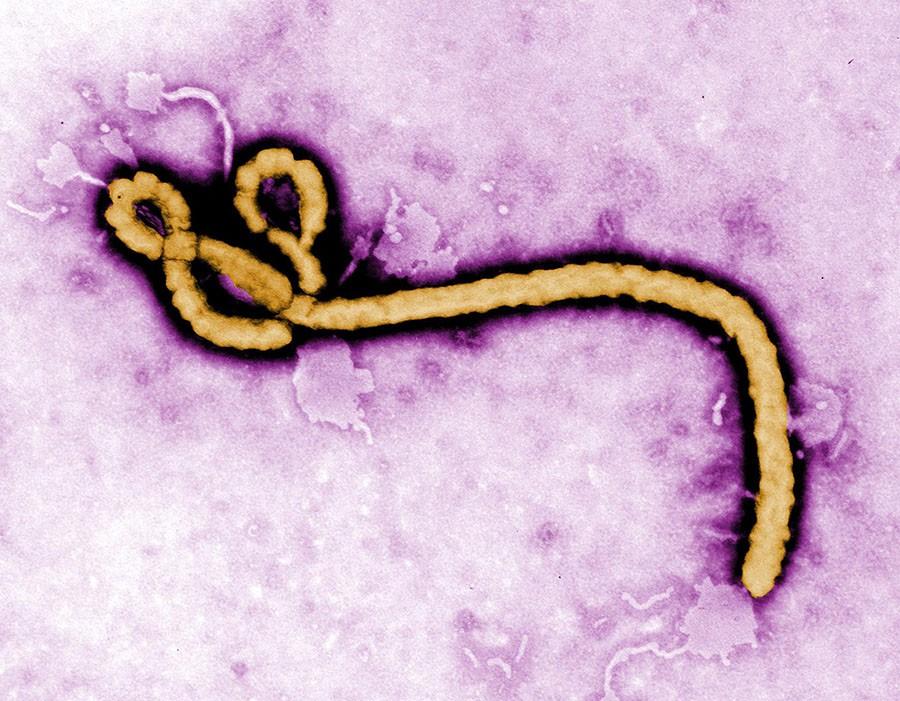Ebola versus funeral homes
Care taken to handle infectious bodies after death
By now, the media has spread the message of how Ebola transfers and what it presents itself like. People know what they should and should not do in order to prevent the possibility of the disease, and if they keep up with the news, they probably know all about the death rate.
But what happens after a patient with Ebola dies? Since the disease is still transmittable, what does the hospital do with the body?
John P. Brooks is the CEO and president of some of the largest family-owned funeral home companies in North Texas, including North Dallas Funeral Home and Aria Cremation Service & Funeral Home.
However, day by day he is an embalmer.
“I orchestrate the preservation of the body through embalming or refrigeration until the funeral or cremation services are performed,” Brooks said. “Schedule staff and assign responsibilities for the arrangement interview with the next of kin and the cremation or funeral services.”
Brooks and Funeral Director/Embalmer Shannon Thomas take care of bodies after they leave the morgue. They have direct contact with almost every body to properly treat and prepare it for the funeral and burial.
For the body of a patient who died from an infectious disease, the schedule runs a little differently.
“We treat every decease that enters our prep room with universal precautions,” Thomas said. “That is, treating everyone like they have Ebola or another contagious disease. This way we are always protected. We use PPE (personal protection equipment) over all of our body in order to protect us from infectious bacteria and diseases. Dealing with all bodily fluids, as a mortician, we have to protect ourselves.”
Though Brooks and his employees have not been informed by professionals in the medical field on how to handle infectious patients, they have not been left completely on their own.
“I have been advised by our national funeral directors organization as to how to handle the body of Ebola patients,” Brooks said. “We double glove, wear nonporous gowns, face shields and goggles when handling the body. We create more air flow, increase the speed of the exhaust fan in the preparation room and use a disinfectant spray that is recommended by the Funeral Directors Association and the Center for Disease Control and Prevention. We would cremate the body, not embalm it.”
Thomas says that one of her fears in the future is someone dying of Ebola or another virus without knowing it, and then the body being sent to the funeral home without any precaution.
“Our main concern is the safety of our employees,” Brooks said. “Our primary need is for continuing updates of how to handle the body by the CDC and the National Funeral Directors Association we belong to.”
Brooks is worried that working on the bodies of Ebola patients could be very dangerous, but it is not the first time that the funeral home has worked with the body of a patient with an infectious disease.
“We have worked with AIDS, hepatitis B and C, mad cow disease and Methicillin-resistant Staphylococcus aureus (MRSA),” Brooks said.
They handle those bodies the same way they would handle an Ebola body and take extra precautions.
“When I began in this field, I had to receive several rounds of Hepatitis B vaccines to help prevent me from getting the virus,” Thomas said. “Being smart, careful and using universal precaution lowers the risk of transmitting any virus.”
Thomas believes that this line of work is her calling, and she is willing to do whatever she needs to in order to help the families by giving them one last goodbye.
“It is important that the general public know that funeral homes work with local health agencies to establish proper procedures for handling infectious diseases,” Brooks said. “They should know that every known precaution is implemented in these cases to protect both the employees of the funeral home and the general public.”

Ash Thomas. Four time Oscar nominee. Avid sailor. Competitive wrestler. I’ve been around the world six times and I’m up for Woman of the Year.
Except,...


